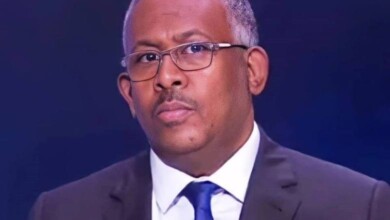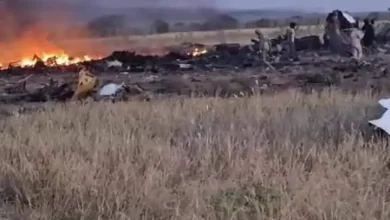The Islamists’ return through war An imminent danger that threatens Sudan
Zuhair Othman Hamad

As the war in Sudan continues to rage since April (2023), concerns regarding the Islamists’ return to the political and military scene by exploiting the conflict to achieve new gains; are increasing. This aforementioned return wasn’t merely an arbitrary development, rather, it reflects a studied strategy to invest in chaos and the State’s absence as a means of reempowerment.
The incessant appearance of the Islamic battalions’ leaders, headed by the leader of “Al-Baraa Ibn Malik Brigade”, Almusbah Abuzaid Talha, is more than just a coincidence, its a clear indication of the Islamists’ attempts to exploit the military conflict as a bridge to return to power. These advances come at a time when the country is filled to the brim with armed militias, which -in turn- exasperates the complexity of the situation and threatens the future of Sudan.
The Islamists and Militias Race to Seize Power
Following the outbreak of the war, armed Islamic groups have sought to restore their positions, taking advantage of the security collapse and weakened State institutions. The appearance of Almusbah Talha in the Republican Palace, after the withdrawal of the Rapid Support Forces (RSF), surrounded by military and high -ranking officers, was a milestone in the transformation of the balance of power in the war. The conflict was no longer limited to a confrontation between conflicting political parties, rather it was transformed into a race between the various militias to seize power at any cost.
Political analyst Al-Amin Bilal believes that the existence of multiple armed groups poses the greatest danger to Sudan, as the State has become hostage to the conflicts of “everyone against all”, in the absence of a unified vision to build a stable Sudan. This reality enhances the opportunities for the Islamists’ return, especially in light of the disintegration plaguing the civil front, and the lack of an integrated national project capable of confronting their expansion.
Islamists and the Forced Return Strategy
The Islamists’ record in Sudan has always been linked to political failure and economic collapse. After the public took to the streets to overthrow them in the glorious revolution, today they are trying to return through military force, using a religious discourse to justify their presence in the battlefield.
The statements of the leader Abdul-Hayy Youssef, who admitted that the Brotherhood battalions fighting alongside the Sudanese Armed Forces (SAF) “deserve their own share in power”, clearly reflect the project of reempowerment. This particular scenario restores the (1989) coup, when the Islamists used the Sudanese Army to rule, before they turned the country into an arena for repression and tyranny. Their return today, under any name, means repeating the same tragedies and aborting any opportunity to build a democratic civil State.
The Militias and Islamists’ Alliance: Chaos in the Service of Power
The Islamists’ presence in the military scene is not limited to the battlefield, but extends to the formation of complex alliances with other militias, which exasperates the state of instability. These groups rely on ideological loyalty networks, making them more dangerous than other armed forces.
Journalist Mohammed Al-Mukhtar confirms that granting Islamists military and media platforms within the Sudanese Army is harmful to the reputation of the Army, and confirms its deviation from its professional role. These brigades are accused of crimes similar to the practices of (ISIS), which reflects the nature of the danger posed by their presence in the battlefield.
Popular and Political Rejection of the Islamists’ Return
The new Sudan cannot be built by recycling the same forces that led the country to the abyss. The Islamists who destroyed the State and took advantage of religion to achieve political gains cannot be allowed to return through the war.
The solution doesn’t lie in the militarization of the conflict or the empowerment of militias, but rather in rebuilding the State on true democracy, which guarantees the participation of all civil forces without resorting to violence and extremism.
Today, the Sudanese people ought to realize the danger of the Islamists’ return under any pretext. Sudan deserves a future without wars, and without groups that thrive on bloodshed and chaos. Building a democratic civil State requires exiling all forces that exploit religion in order to seize power, and to create a political system based on justice and equality for all.
The Battle in Sudan isn’t Only Military, But Political and Ideological as Well
The war in Sudan isn’t limited to a struggle on the ground, but extends to encompass a political and intellectual battle that defines the future of the country. The return of the Islamists through the gate of war represents an imminent threat, as it reproduces the same experience that led Sudan to failure. Refusing their return should be part of a comprehensive strategy to build a real democratic State, capable of overcoming the era of wars, militias and extremism.
Sudan deserves a better future, a future devoid of Islamists and violence, one based on justice, citizenship and peace.





